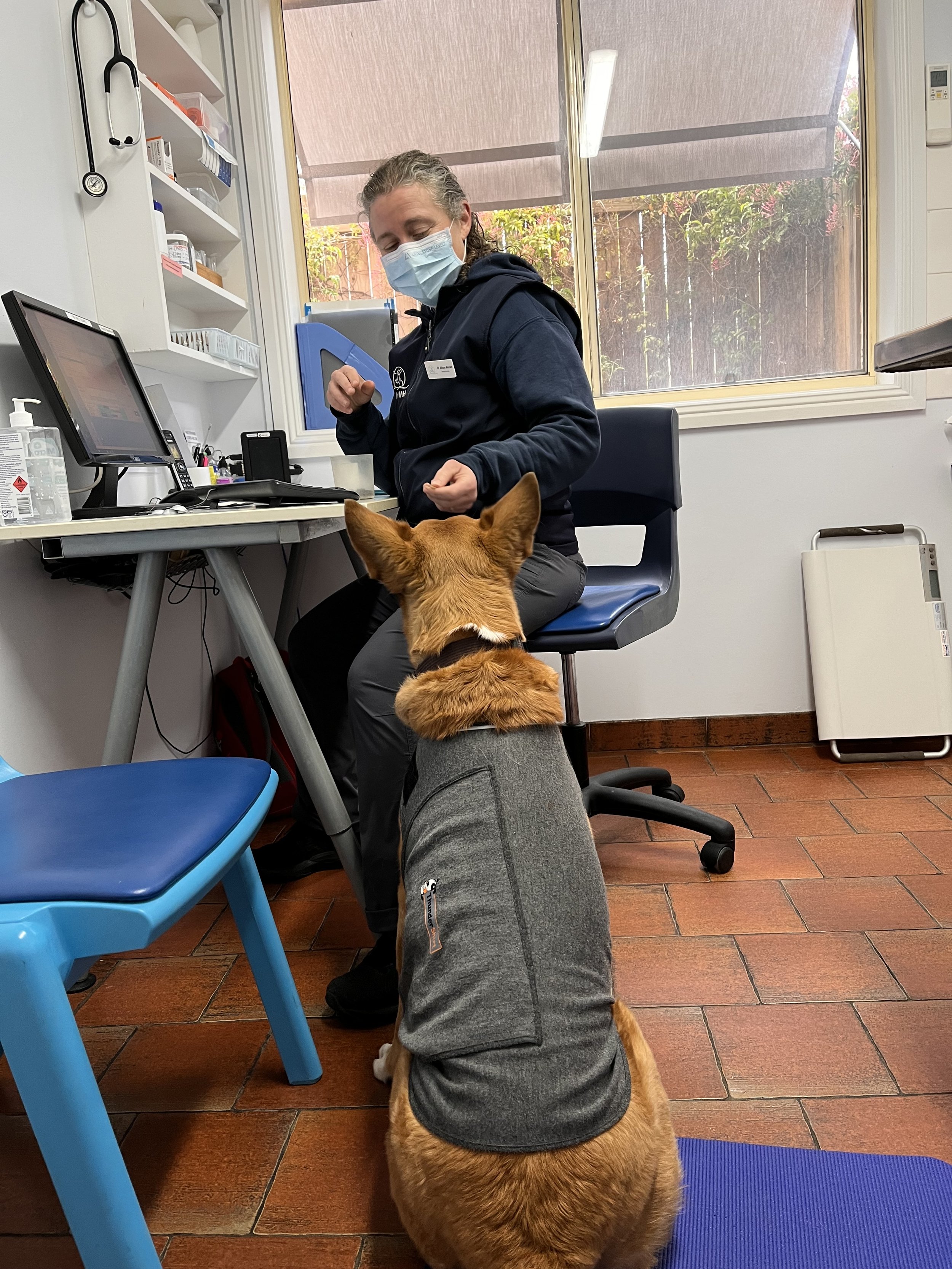
How titer tests prevent over-vaccination and toxic stress in senior dogs.
Recently my phone pinged and I received an automated message from my veterinary clinic, “Fletch is due his C3, Leptospirosis, and Kennel Cough vaccines”. My immediate thought was WOW, that sounds like a lot!
Since the last time he was vaccinated (three years ago for the C3, otherwise known as a combination shot), I’ve learned a lot about vaccinations and the damage they can do to your dog, in particular seniors and small dogs. I’ve also learned that there was a test that not many pet guardians knew about. A test that would allow me to track his antibodies and immune response to Parvovirus, Canine Distemper, and Canine Hepatitis, which is what the C3 vaccine is administered for.
It’s called a Titer Test, and if your vet refuses to do one, I suggest you move on and find a vet who will.
A titer is a simple blood test that is then sent off to a lab, it measures your dog’s antibodies from previous C3 vaccinations that are circulating through the blood, protecting against the three associated viral diseases.
A titer test allows pet guardians to make conscious, informed decisions about vaccinations and more importantly, prevent over-vaccination.
Why is this important, let’s step back in time, over 20 years ago to a research piece by Veterinary immunologist, Dr. Ronald Schultz. He studied every major canine vaccine and concluded…
“Vaccines for diseases like distemper and canine parvovirus once administered to adult animals, provide lifetime immunity”.
Boom, that’s the kicker. I’m not an expert, nor a veterinarian, so I decided to have an informed conversation with my vet to find out if vaccinating my senior, 12.5 yr old best friend would cause him harm.
We discussed:
The research and science. She confirmed the research-based theory that adult dogs, once vaccinated for C3 are thought to have lifetime protection against Parvovirus, Canine Distemper, and Canine Hepatitis.
Titer tests. She confirmed that it would give us hard evidence of Fletch’s antibodies against these three viral diseases.
Our local area. The environment is key. There have been no reported cases of Parvovirus, Distemper, or Hepatitis in our local area. Nor Leptospirosis for that matter.
Fletch’s age. We discussed the impact of the vaccine toxins on his 12.5 yr old body.
The fact that Fletch hates blood tests. He has an extreme anxiety response to needles which is getting worse as he ages.
So we both landed on a mutually informed, considered outcome specific to Fletch’s age, needs and environment.
We decided not to vaccinate him for C3 or Leptospirosis (I must note here that Leptospirosis is fatal for dogs, so you must consult your veterinarian and discuss if it is present in your area).
We agreed that my vet would contact me if any of the viral diseases of concern, presented at the surgery, and if they did we would do a titer test to check Fletch’s antibodies and vaccinate if required.
Fletch did have a kennel cough vaccine, which went up his nose in the form of a quick spray. Fletch is part of a walking group on weekdays and around other dogs so at a higher risk of contracting Kennel Cough.
I must caveat at this point, that a titer test will not check for Leptospirosis antibodies, only those associated with the C3 vaccine. Whether or not you choose to vaccinate for Lepto, very much depends on your local area and if cases have been reported. Leptospirosis is fatal to all dogs, you must be guided by your local vet on whether or not it is a risk where you live.
Before we wrap up, I want to touch on yearly heartworm vaccines for seniors. They aren’t a good idea.
If you think about it, the sheer load of toxins that go into anything that protects our fur babies for a whole year will be high.
We aren’t saying you shouldn’t protect your best friend against heartworm (particularly given the wet weather and subsequent mosquitos in Australia this year), we are suggesting that you opt for a monthly chew over an annual injection. The simple maths of it is that a monthly chew carries far fewer toxins into their body in one hit, than an annual vaccination.
Lastly, as guardians, we all have a right to our own opinion on vaccination. Covid-19 drew a line in the sand for many people to stand on one side or the other. There is no judgment here whatsoever.
We encourage all pet guardians to do the research, consider the advice from their vet and go from there. What we do hope is that this article inspires you to make informed, conscious decisions on behalf of your dogs, no matter their age.
After all, they don’t get a say in what we put into their bodies, but we do!
Note* The advice on this page is general advice only and may not be suitable for your dog. The Silver Woof team highly recommends that you consult with your veterinarian before implementing change in your Silver Woof’s environment, routine or diet.
